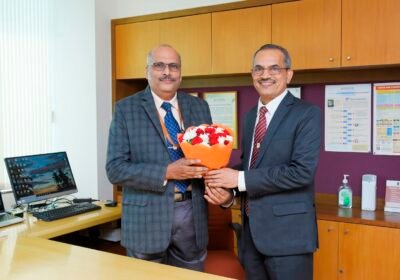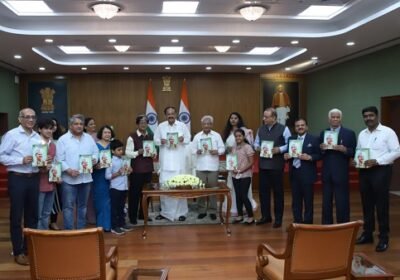Mgnregs Has a Strong Rural Impact Providing Employment to Most Job Card Holders: Dalberg Advisors Study
October 18, 2022, , India: Dalberg, a leading social impact advisory group today released an extensive study on “The state of rural employment: A look at MGNREGS across 5 states in India”. The research attempts to provide comprehensive evidence on how the world’s largest employment guarantee program is faring for millions of low-income households who rely on this key social protection measure. It focuses on understanding the gaps that exist in the scheme’s on-ground implementation, to recommend ways in which these might be bridged to improve the delivery of benefits to intended beneficiaries. The study was supported by Omidyar Network India, an investment firm focused on impact.
The research focused on five states namely Andhra Pradesh, Jharkhand, Karnataka, Rajasthan, and Uttar Pradesh which accounted for more than one-third of all employment provided within the scheme and have over 40% of registered MGNREGS workers in the country. Along with understanding beneficiaries’ experience with MGNREGS, the report is among the first to spotlight challenges and perspectives of local administrators that can be useful for long-term policy action and implementing immediate solutions at the frontline.
The study found that although MGNREGS has been a strong rail for rural Indian households during the COVID-19 pandemic, critical gaps continued to undermine the scheme’s welfare potential:
Enrollment – 47% of low-income households had at least one active job card. 29% of adults in rural areas did not have an active job card but wanted to get one. Of these, 72% of them belonged to households that did not have a job card at all.
Application for employment – 70% of job card holders wanted employment under MGNREGS at least once. 18% of them were unable to submit their job application due to perceived discrimination and high transaction costs (e.g., making multiple visits to the Gram Panchayat).
Getting work – All households that applied for work under MGNREGS received some work; households demanded an average of 95 days of employment (against an entitlement of 100 days) and received, on average, 66 days of employment.
Getting wages – 95% of job card holders who received MGNREGS employment in the last year had received wages for their most recent employment. 37% of job card holders who received employment reported being paid on time.
Grievance redressal – 20% of job card holders had a grievance related to work allocation or payment of wages, and 91% sought redressal; more than half received partial to full resolution.
Experience of women – Women make up a key beneficiary group for the scheme. However, 6% of the women with job cards reported having tried to apply for employment without success as no work was available for them. Further, 26% of the women who wanted MGNREGS work but could not apply cited a lack of understanding of the application process as the reason for being unsuccessful.
The study also highlighted the lack of adequate staff on the administrative front at the Gram Panchayats and technical skills to seamlessly implement MGNREGS:
There was more demand for MGNREGS than was being registered; 41% of administrators stopped accepting applications for employment after the year’s labor budget was exhausted.
Employment demand surveys were carried out in only 79% of Gram Panchayats and work planning was less frequent in others.
The capacity to support timely wage payments was limited as many Gram Panchayats had insufficient technical staff to complete work verification and measurement
39% of local administrators were unable to resolve beneficiary challenges concerning payment of wages among other issues mostly because they lacked authority to do so. 28% also reported that they did not possess grievance redressal mechanisms.
“MGNREGS has been transformational for livelihood security in rural India, especially through Covid-19 where it served as a critical lifeline for millions of low-income households. Our study underscores the well-documented need to increase the availability of work, especially for women who continue to be disproportionately left out and too often experience discrimination when they try to obtain work through the scheme. We find that a few critical process improvements—to the application process in recording demand, and work planning — could have an outsized role in meeting the demand for MGNREGS work and delivering it more effectively. These changes offer an opportunity to further deepen the impact of one of India’s most important social protection schemes.” – said Swetha Totapally, Partner, Dalberg Advisors.
“Given our focus on improving the lives of the Next Half Billion by supporting tech-focused interventions, studies like this are critical in surfacing evidence-based insights that can help stakeholders in policy-making and capacity building. Digitization and technical developments have enabled faster and broader coverage of beneficiaries for various public schemes in India. While there have been past studies on the impact of and benefit of MGNREGS, this study aims to highlight simple and practical modifications that can make the scheme even more inclusive and accessible.” said Shilpa Kumar, Partner, Omidyar Network India
The full report can be downloaded at India Policy Insights by Dalberg.
Notes to Editors
Highlights on the methodology
Dalberg has used a robust, mixed methods approach with two surveys as core instruments involving 4600 potential and current MGNREGS beneficiaries and 1500 local administrators from the Gram Panchayat.
Stakeholder interviews with government and researchers were conducted, detailed process maps of MGNREGS implementation in each state were deployed and existing literature was thoroughly reviewed to situate the questionnaire and insights
For the beneficiary survey, the report particularly focused on the experience of single women (never married, widowed, divorced or separated) and boosted the sample to include experiences from in-person interviews with 7.5% of such women.
Dalberg’s enumerators reached out to the local administrators in villages to fix appointments to conduct in-person interviews for the study.





